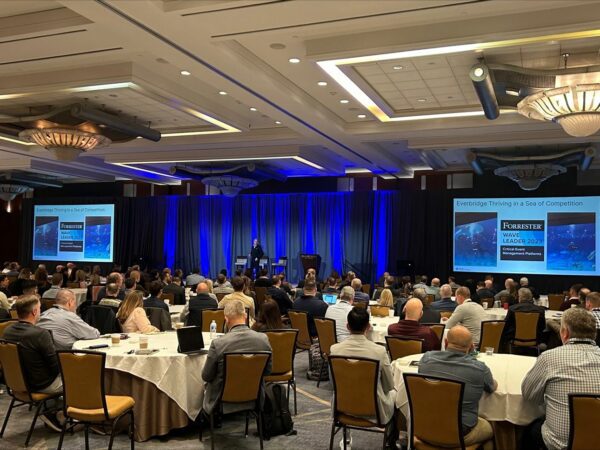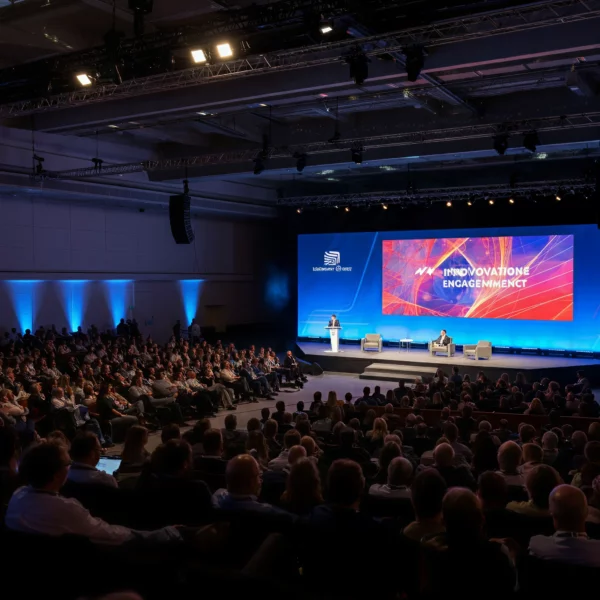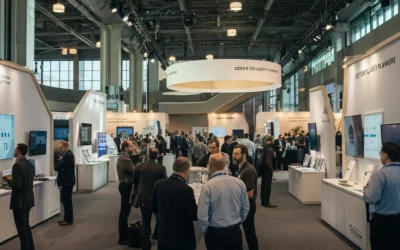Planning a corporate conference is no small feat. From securing the right venue to coordinating speakers, managing logistics, and designing an engaging attendee experience, every detail matters. When executed effectively, a well-planned conference can drive brand authority, foster networking, and deliver measurable business results. This guide walks you through how to plan a corporate conference from start to finish, covering budgeting, logistics, speaker management, marketing strategies, and post-event follow-up.
Understanding Conference Planning Management
Conference planning management is the strategic process of organizing and executing a corporate conference from start to finish. It encompasses venue selection, budget creation, speaker coordination, registration systems, attendee experience design, event marketing, and post-event evaluation. Proper planning ensures a seamless experience that aligns with company objectives and enhances ROI.
Setting Clear Objectives
The foundation of any successful conference is a set of clearly defined goals. Are you aiming to educate attendees, increase sales, build partnerships, or strengthen brand awareness? Establishing measurable outcomes allows you to design a program that aligns with company objectives and sets the stage for tracking performance metrics, including attendance, engagement, and post-event ROI.

Budgeting and Cost Management
Budgeting is a critical component of conference event planning. Create a comprehensive budget that accounts for venue costs, catering, audio-visual production, marketing, staffing, transportation, and contingencies. Tracking expenses with real-time dashboards ensures you maintain financial control while maximizing the value of every dollar spent. Strategic cost management helps justify investments and demonstrates the ROI of your conference.
Venue Selection
Selecting the right venue goes beyond size and location. Key considerations include accessibility for attendees, technical infrastructure, flexibility for breakout sessions, ambiance, and cost transparency. Whether hosting in a luxury hotel, a convention center, or a unique offsite location, the venue should support both logistical needs and the overall attendee experience.
Venue Selection Criteria for Large Conferences
Evaluate venues based on accessibility, safety, technical capabilities, layout flexibility, and hidden costs. Conduct site visits and mock walkthroughs to ensure the space meets all logistical requirements and supports a memorable attendee experience.
Registration and Ticketing
A streamlined registration process sets the tone for the conference experience. Modern platforms allow mobile check-in, automated confirmations, customized badges, and integration with CRM systems to personalize communications. Efficient conference registration and ticketing solutions enhance attendee satisfaction and simplify data collection for post-event analysis.

Speaker Management
Effective speaker management for conferences ensures content aligns with your conference goals and resonates with the audience. Coordinate schedules, provide clear guidelines, and conduct rehearsals to minimize technical issues. Supporting speakers with coaching or content guidance enhances delivery and elevates the overall attendee experience.
Marketing and Promotion
Successful conferences rely on strategic marketing and promotion. Build awareness through email campaigns, social media, partner networks, press releases, and targeted advertising. Highlight speakers, sessions, and unique experiences to generate excitement. Leveraging urgency and social proof can significantly increase registration and engagement.
Conference Marketing and Promotion Strategies
Develop multi-channel campaigns tailored to different audiences such as sponsors, VIPs, and first-time attendees. Utilize early-bird incentives, teaser content, and testimonials to maximize engagement and conversions.

Logistics and On-Site Management
Conference logistics management tips are critical to seamless execution. Coordinate vendors, manage schedules, ensure technology readiness, and establish contingency plans. Attention to detail in catering, signage, transportation, and staffing ensures the event runs smoothly and attendees enjoy a polished experience.
Designing the Attendee Experience
Engaging attendees requires intentional experience design. Map the attendee journey to balance content delivery with networking opportunities, interactive sessions, and breaks. Incorporate gamification, live polling, and breakout workshops to foster participation and engagement. Personalized tracks for different attendee segments enhance satisfaction and perceived value.
Conference Attendee Experience Design
Consider VIP tracks, customized agendas, and immersive experiences that leave a lasting impression. Focus on creating memorable moments that reinforce the conference’s purpose and your brand.
Post-Event Follow-Up
The impact of a conference extends beyond the final session. Implement post-event follow-up strategies including surveys, session recordings, and recap communications. Collect feedback to evaluate attendee satisfaction and measure performance against objectives. Post-event analysis provides insights for improving future conferences and demonstrating ROI to stakeholders.
Hybrid and In-Person Conference Planning
While in-person events provide unmatched networking and immersive experiences, hybrid conferences expand reach and accessibility. Balancing in-person and virtual elements requires careful planning of technology, content delivery, and audience engagement strategies. Thoughtful integration ensures all participants benefit from the experience, whether onsite or online.
Measuring Success and ROI
A successful conference delivers measurable results. Track attendance, engagement, lead generation, and revenue impact. Combine quantitative metrics with qualitative feedback to understand attendee experience and program effectiveness. Clear reporting demonstrates the value of your investment and guides future planning.
Conclusion
Conference planning management is both an art and a science. By setting clear objectives, managing budgets, coordinating speakers, designing engaging experiences, and evaluating performance, your conference can drive meaningful business outcomes. Strategic planning ensures every aspect aligns with your goals, creating events that inspire, inform, and leave a lasting impression. Partnering with a professional conference management services company ensures expert execution, creative solutions, and measurable success.
You might also like…
Event Registration Software & Corporate Event Registration Solutions That Transform the Attendee Experience
The Most Reliable Event Registration Software for Corporate Conferences, Trade Shows, &...
Corporate Event Registration Solutions: Onsite Tools, Support, and Strategies Every Planner Needs
Corporate event planners face increased pressure to deliver flawless attendee experiences. Whether...
How to Plan a Successful User Conference: A Full Guide to Conference Planning and Management
1) Start with hypotheses — treat the event like an experiment Stop thinking “attendance” as your...




